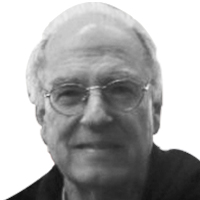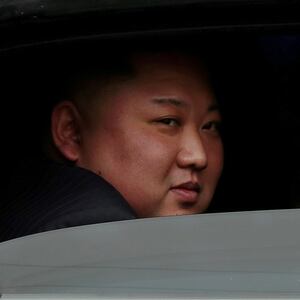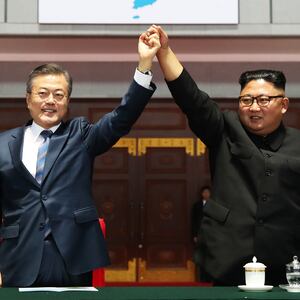Conservative critics of South Korea’s government persist in pressing claims of widespread fraud in the country’s April elections, pointing to what they say is new evidence—in the form of alleged electronic distortions and mail-in balloting irregularities—to suggest the country’s ruling party won its majority in the National Assembly with expertise and advice from China.
The ongoing controversy comes as U.S. President Donald Trump and his Justice Department claim interference from China, not Russia, is the biggest threat to voting in the U.S. Facebook has already taken down a slew of China-linked pages targeting both Trump and Democratic nominee Joe Biden. (Meanwhile a Department of Homeland Security whistleblower says Trump allies interfered with intelligence reports to downplay Russia’s threat.)
Charges of cheating in the South Korea assembly elections gained steam with the publication in May of a lengthy study, “Anomalies and Frauds in the Korea 2020 Parliamentary Election,” by a University of Michigan professor and expert in detecting election fraud, Walter Mebane. “The statistical model,” said Mebane, “offers evidence that fraudulent votes occurred in the election that may have changed some election outcomes.”
Yoo Gyeong-joon, former head of Statistics Korea, disagreed with Mebane’s testing, saying he “lacked [an] understanding of the Korean electoral system.” Nonetheless, conservative Korean activists, citing Mebane’s paper, claim as many as 3 million of the 20 million votes cast in April were fraudulent. They are also criticizing mainstream conservative politicians for having accepted the results of those elections in which liberal adherents of President Moon Jae-in won 180 of the 300 assembly seats. Conservatives were left with 103 seats, their lowest showing in 60 years.
The voting, they argue, was allegedly tainted by computer tricks engineered by the Chinese Communist Party with the connivance of Huawei, China’s premier technology company. Activists have alleged that Huawei devices were hidden inside ballot-sorting hardware, and Choi Won-mog, a law professor at Ewha Woman’s University in Seoul, even claims that the Chinese Communist Party's slogan, “Follow the Party,” was embedded as secret code in statistical data of the election results.
Choi—who has floated conspiracy theories that China also interfered in elections in Turkey, Iraq, the Democratic Republic of Congo, Kenya, Iran and Kyrgyzstan—accuses the ruling party of altering election servers to cover their tracks. He and lawyer Park Joo-hyeon are convinced that China smuggled its own citizens into the country as election supervisors, and they claim that 18,000 fake South Korea passports—supposedly made for Chinese officials to pose as Koreans—were allegedly discovered on an external hard drive dumped near the Incheon International Airport.
“Normal citizens of Korea examined the list of election supervisors and found many ‘Chinese’ names,” Choi said.
Min Kyung-wook, a former assembly member who lost his bid for reelection in April, added, “This election in Korea is high-tech digital fraud. At the center of the fraud are computer services.” Now, he claimed, “authorities are tampering with the evidence.”
The activists, however, are up against a wall of skepticism from some of their one-time conservative friends.
Among the skeptics is an outspoken political figure, Ha Tae-kyung, who has accused Min of “merely dividing the party, hindering innovation” and making the party “a mockery of the people and an international disgrace.” Activists say mainline conservatives just want to get along with the liberal government to hold onto comfortable business and political relationships.
Korean officials have shrugged off the interference claims, attributing them to disgruntled opposition politicos, calling them conspiracy theories and pointedly ignoring them. They’ve pressured the Korean media not to disseminate the claims and have banned rightist protesters from staging demonstrations—ostensibly for fear of spreading the coronavirus, which Korea has been notably successful in keeping under control.
Yet even as the South Korean activists’ claims of election interference have come under fire, foreign analysts say they, too, are concerned about discrepancies in the voting data.
“The part that I found most convincing was the evidence showing the percentage of people who voted in the various districts,” said Bruce Bennett, longtime Korea expert at the Rand Corporation. “The districts close to and especially over 100 percent voting are almost certainly cases of fraud. With close elections like you often have in Korea, you can make a big difference by even a modest amount of ballot box stuffing.”
“Whoever put together the fraud should have avoided getting voting percentages larger than 100 percent,” he said. “The fact that they did not shows they were not well organized. But the fact that the turnout in many districts was over or near 100 percent does say that the fraud was widespread.”
And “if ballot boxes were stuffed,” Bennett added, “some election officials were dishonest and likely did facilitate other forms of election fraud.”
U.S. officials in Korea and Washington have been notably uninterested in fraud claims ever since the U.S. ambassador, Harry Harris, congratulated the liberals on their success in the first flush of victory. In fact, accusations of fraud did not begin to circulate widely until well after the elections as Korean activists began studying the results in minute detail.
“I’ve been struck by how little attention the April 2020 elections are getting,” said Grant Newsham, a former U.S. marine officer and commentator on Asian affairs, moderating a discussion at the National Press Club in Washington of election rigging in Korea and its lessons for Americans.
“You’re seeing a grassroots movement saying the elections were rigged. The voting patterns were just so improbable, and the National Election Commission response has been half-hearted, non-convincing,” he said.
Ultimately, said Newsham, “The hardcore is trying to turn Korea into a one-party system.”
Conspiracy theories about Chinese influence and interference in the elections have regained currency as President Moon loses popularity amid criticisms of his attempts to meet with North Korean leader Kim Jong Un and his pro-China policy.
Accusations of electoral fraud coincide with what may be the worst moment for Moon since his victory in a “snap election” more than three years ago after the Candlelight Revolution toppled his conservative predecessor, Park Geun-hye, impeached and jailed for embezzlement and influence-peddling.
Opposition politicians in Seoul are castigating Moon for his weak response to the bizarre killing of a South Korean official who was shot and then cremated by North Koreans in disputed waters in the Yellow Sea off North’s south west coast.
North Korean leader Kim Jong Un expressed “regret” over the incident, but the North has spurned South Korean requests for an investigation and warned South Korean navy vessels to stop looking for the body of the man, who was wearing a life vest, adrift in the sea, possibly after falling off a South Korean boat.
Moon has said he hopes the case will “ignite the spark of dialogue” between North and South—a plaintive plea for renewing North-South talks while conservatives disparage his efforts at reconciliation and dispute the latest assembly elections. The man’s brother, in Seoul, said no way was he was trying to defect to the North. Rather, said the brother, authorities had lost precious time before beginning the search, had not sent enough ships and search planes, and had refused to provide “accurate information.”
The Moon administration has yet to comment on South Korean election interference claims.








